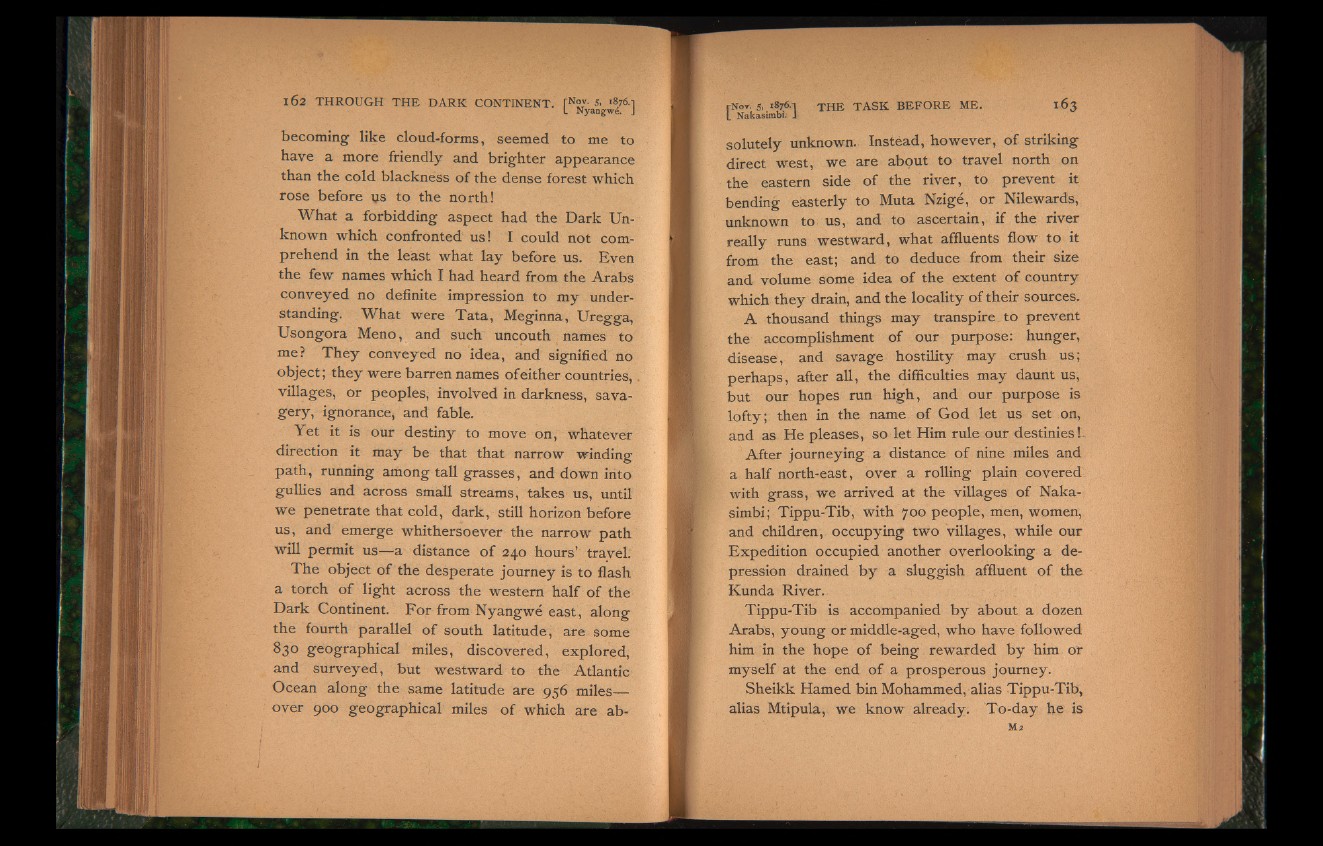
becoming like cloud-forms, seemed to me to
have a more friendly and brighter appearance
than the cold blackness of the dense forest which
rose before as to the north!
What a forbidding aspect had the Dark Unknown
which confronted us! I could not comprehend
in the least what lay before us. Even
the few names which I had heard from the Arabs
conveyed no definite impression to my understanding.
What were Tata, Meginna, Uregga,
Usongora Meno, and such uncouth names to
me? They conveyed no idea, and signified no
object; they were barren names ofeither countries,
villages, or peoples, involved in darkness, savagery,
ignorance, and fable.
Yet it is our destiny to move on, whatever
direction it may be that that narrow winding
path, running among tall grasses, and down into
gullies and across small streams, takes us, until
we penetrate that cold, dark, still horizon before
us, and emerge whithersoever the narrow path
will permit us—a distance of 240 hours’ travel.
The object of the desperate journey is to flash
a torch of light across the western half of the
Dark Continent. For from Nyangwe east, along
the fourth parallel of south latitude, are some
830 geographical miles, discovered, explored,
and surveyed, but westward to the Atlantic
Ocean along the same latitude are 956 miles—
over 900 geographical miles of which are abrNor.
S. »»T&l THE T A SK BEFORE ME. 1 6 3
L N a k a s im b i . J
solutely unknown. Instead, however, of striking
direct west, we are about to travel north on
the eastern side of the river, to prevent it
bending easterly to Muta Nzige, or Nilewards,
unknown to us, and to ascertain, if the river
really runs westward, what affluents flow to it
from the east; and to deduce from their size
and volume some idea of the extent of country
which they drain, and the locality of their sources.
A thousand things may transpire to prevent
the accomplishment of our purpose: hunger,
disease, and savage hostility may crush us;
perhaps, after all, the difficulties may daunt us,
but our hopes run high, and our purpose is
lofty; then in the name of God let us set on,
and as He pleases, so let Him rule our destinies !
After journeying a distance of nine miles and
a half north-east, over a rolling plain covered
with grass, we arrived at the villages of Nakasimbi;
Tippu-Tib, with 700 people, men, women,
and children, occupying two villages, while our
Expedition occupied another overlooking a depression
drained by a sluggish affluent of the
Kunda River.
Tippu-Tib is accompanied by about a dozen
Arabs, young or middle-aged, who have followed
him in the hope of being rewarded by him or
myself at the end of a prosperous journey.
Sheikk Hamed bin Mohammed, alias Tippu-Tib,
alias Mtipula, we know already. To-day he is
M2